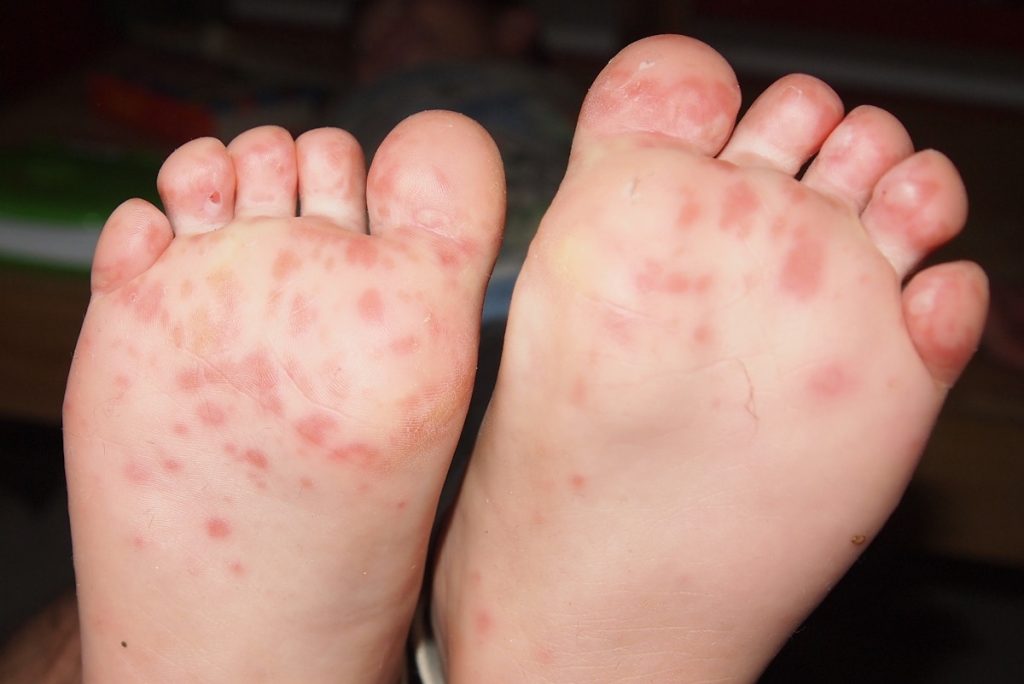Thailand’s Ministry of Public Health has issued a nationwide warning following a significant surge in hand, foot and mouth disease (HFMD) cases among young children during the onset of the rainy season. The increase was flagged by the Department of Disease Control, which noted that cooler, more humid weather creates an ideal environment for virus transmission especially among preschool-aged children.
Case Numbers & Age Breakdown
Between January 1 and June 25, 2025, Thailand recorded 21,315 HFMD cases, with a breakdown as follows:
- 15,753 cases in children aged 0–4 years
- 4,658 cases in children aged 5–9 years
- 544 cases in children aged 10–14 years
This terrifying rise has prompted urgent public health interventions to contain and reduce further spread.
How HFMD Spreads
The illness is caused by enteroviruses most commonly coxsackievirus and is transmitted through contact with nasal secretions, saliva, blister or sore fluid, fecal matter, or contaminated items and surfaces. Its prevalence typically increases from June to August, and reinfection is possible even after previous illness.
Symptoms and Emergency Warning Signs
Typical signs of HFMD include:
- Low-grade fever
- Painful mouth sores (inner cheeks, soft palate, tongue)
- Blisters on palms, soles, hands, feet, and torso
- Drooling and refusal to eat or drink in infants
Parents are urged to seek immediate medical attention if a child exhibits warning symptoms such as:
- High or persistent fever
- Difficulty eating or drinking
- Severe lethargy
- Seizures
- Rapid breathing or constant vomiting
Hygiene and School Safety Measures
To curb the spread, authorities recommend:
For Parents:
- Frequent handwashing with soap, before and after meals and after toileting or play
- Regular disinfection of toys, utensils, and surfaces
- Avoid sharing personal items like cups, towels, or cutlery
For Schools and Childcare Centers:
- Daily morning screening for symptoms
- Sending any sick children home until full recovery
- Temporarily closing classrooms if multiple cases emerge, followed by deep cleaning and continued monitoring for a week
Strengthening Immunity During Rainy Season
Officials advise boosting children’s resilience with:
- Balanced diets rich in fruits and vegetables
- Adequate sleep (8–10 hours per night)
- Maintaining strict hygiene practices
- Ensuring up-to-date vaccinations
Parents should act promptly at the first sign of illness early intervention significantly reduces risk and spread.
Why This Alert Matters
- The number of over 21,000 cases this year is considerably higher than typical, signaling an urgent outbreak
- Young children under five are especially vulnerable and most affected
- Rapid identification, isolation, and hygiene practices are critical to interrupt transmission chains
- Coordinated efforts between parents, schools, and health authorities are vital to contain the outbreak
This comprehensive alert reflects Thailand’s proactive public health response as the rainy season poses heightened risks for HFMD. Monitoring, hygiene, and community cooperation remain key to protecting young children.



Comments (0)
No comments yet. Be the first to comment!
Leave a Comment